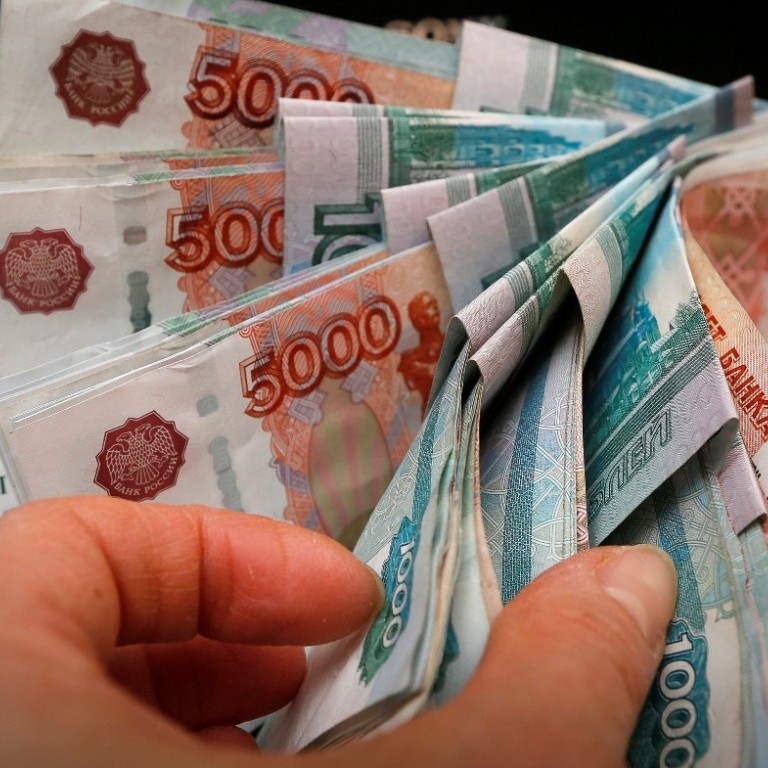
Weak rouble prompts more Russian interest in China, Hong Kong
The weak rouble has prompted more Russian banks and companies to explore opportunities in mainland China and Hong Kong while co-operation at the state level continues to strengthen.
The weak rouble has prompted more Russian banks and companies to explore opportunities in mainland China and Hong Kong while co-operation at the state level continues to strengthen.
The rouble dived to 67.91 per US dollar on December 16 from 44.84 on November 24, before recovering to 53.50 last Friday.
"As the rouble [loses value], we see most major Russian banks quickly seeking partnerships with Hong Kong banks. They are looking to establish correspondent accounts with Hong Kong banks … as well as showing interest in setting up financial funds in Hong Kong or Singapore," said Ashley Dudarenok, the managing director of Alarice International, a Hong Kong consultancy.
"When the rouble was falling, we didn't see much [Russian] money converting into [yuan] as Russian businesses were waiting to see what would come. Now the rouble has recovered a bit, we see more interest to act quickly."
Starting today, China will launch swaps and forwards between the yuan and the Russian, Malaysian and New Zealand currencies, offering a hedging tool against these currencies, according to a statement from the China Foreign Exchange Trade System, a unit of the People's Bank of China.
This month, the International Centre for Development of Innovation (ICDI) saw more Russian company representatives visiting Hong Kong.
"They are seeking business partners and considering setting up regional offices in Hong Kong for greater China," said Elena Trofimova, the chief executive of ICDI, which is partly owned by state-owned Russian Venture.
Mainland players in Shanghai and Shenzhen's Qianhai zone were working aggressively to attract Russian money, while Singapore was much more aggressive than Hong Kong in luring Russian funds, Trofimova said.
"For foreign investors, the [rouble] situation has many advantages. Most expenses in construction in Moscow are denominated in roubles. Our foreign partners can afford to extend the scale of projects with high profitability," Marat Khusnullin, the deputy mayor of Moscow, told the
Khusnullin said China's Dalian Wanda Group was preparing to submit a tender for a US$2 million property project in Moscow.
The Moscow government did not expect any drop in Chinese trade despite the weak rouble, said Sergey Cheremin, a minister in the Moscow city government. "Chinese partners pursue a flexible price policy with their Moscow partners," he said.
In the first nine months of this year, mainland China's trade with Russia, excluding oil and gas, was worth US$17 billion, said Cheremin.
With the weaker rouble, China could benefit by exporting manufacturing equipment to Russia at lower prices, said Simon Cheung, the chief Hong Kong representative of ICDI.
"There will be strong demand for equipment, which China could provide in abundance," Cheung said.
In October, China and Russia signed a three-year currency swap line worth 150 billion yuan (HK$189 billion), which can be expanded with the consent of both parties.
Commerce Minister Gao Hucheng said recently expanding the currency swap and making increased use of the yuan for bilateral trade would have the greatest impact in helping Russia, according to Phoenix Television, which also reported on December 20 that Foreign Minister Wang Yi said the country was willing to help Russia if needed.

